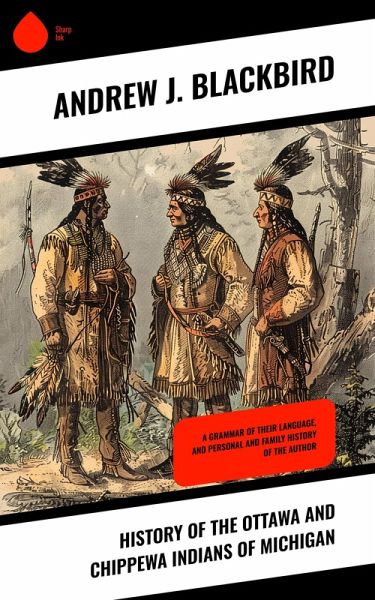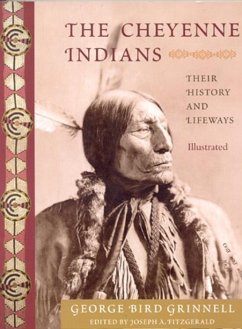
History of the Ottawa and Chippewa Indians of Michigan (eBook, ePUB)
A Grammar of Their Language, and Personal and Family History of the Author
Versandkostenfrei!
Sofort per Download lieferbar
2,66 €
inkl. MwSt.
Weitere Ausgaben:

PAYBACK Punkte
0 °P sammeln!
In "History of the Ottawa and Chippewa Indians of Michigan," Andrew J. Blackbird offers an exhaustive chronicle of the native tribes that inhabit the regions of the Great Lakes. Written with meticulous attention to detail and a narrative style that balances academic rigor with accessibility, this work provides a crucial perspective on the lives, cultures, and histories of the Ottawa and Chippewa peoples. Blackbird weaves together oral histories, anthropological studies, and his own experiences to illustrate the complexities of tribal existence amid colonization and American expansion, situatin...
In "History of the Ottawa and Chippewa Indians of Michigan," Andrew J. Blackbird offers an exhaustive chronicle of the native tribes that inhabit the regions of the Great Lakes. Written with meticulous attention to detail and a narrative style that balances academic rigor with accessibility, this work provides a crucial perspective on the lives, cultures, and histories of the Ottawa and Chippewa peoples. Blackbird weaves together oral histories, anthropological studies, and his own experiences to illustrate the complexities of tribal existence amid colonization and American expansion, situating the tribes in their historical context and underscoring their resilience and enduring legacy. Andrew J. Blackbird, himself a member of the Ottawa tribe, draws from his cultural heritage and firsthand experiences to present an authentic and insightful narrative. His unique position as both an indigenous scholar and historical participant provides the book with a depth and perspective that is often lacking in other historical accounts. Blackbird's commitment to preserving the stories of his people showcases his dedication to cultural documentation and education, making this work a valuable resource for understanding Native American history in Michigan. This book is an essential read for anyone interested in Indigenous studies, American history, or the cultural narratives of the Native American tribes of Michigan. Blackbird's nuanced portrayal encourages readers to engage with these histories critically and empathetically, making it a vital addition to both academic and general collections.
Dieser Download kann aus rechtlichen Gründen nur mit Rechnungsadresse in A, B, BG, CY, CZ, D, DK, EW, E, FIN, F, GR, HR, H, IRL, I, LT, L, LR, M, NL, PL, P, R, S, SLO, SK ausgeliefert werden.













